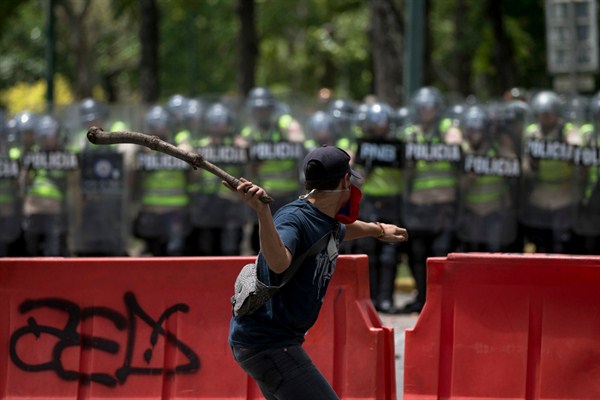Next week, on June 23, the Permanent Council of the Organization of American States (OAS) will meet to discuss Venezuela, a country in the throes of an economic, political and humanitarian crisis. It now appears that it’s only a matter of time before Venezuela—virtually institution-less, politically polarized, facing chronic food and medical shortages, and with its government and military wracked by corruption—implodes and becomes a failed state.
How did this happen? How did a country with abundant natural resources, a nominally democratic government and basic human rights, one that is a member of a multilateral system with numerous safeguards to protect democracy, fall so far?
Perhaps a more pointed question is, How and why did an entire region of democratically elected governments that make up the OAS, an organization with at least a rhetorical commitment to defend democracy, just stand by and watch the downward spiral, fully aware of where it was heading?

